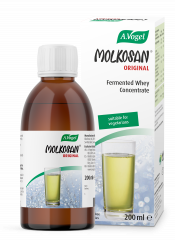1 – Watch your weight
Did you know that your body weight could be having a significant impact on your cholesterol levels? What we eat day in day out can obviously have quite a direct effect on our waistlines, however, what you choose to eat (and how much of it) can also put pressure on your digestive system and this, more indirectly, could also be influencing your cholesterol levels. Here’s why.
As you eat foods made up of carbohydrates, fats and proteins, your digestive system gets straight to work processing these. Digestive enzymes are released both within the stomach and in the small intestine ready to break down the food you eat into its simplest units. Once absorbed into our bloodstream, carbohydrates and proteins are sent to the liver for more processing whilst fats are combined with cholesterol (made by the liver) and circulate around your body.
So, the liver not only has an important role in secreting bile and managing the breakdown of the foods we eat, but it also helps manage how the different components of your diet are processed and utilised – whether they get put to use quickly for energy or are stored in the form of fat, for example!
Therefore, by losing weight, you can help guarantee you mobilise more of the ‘bad types’ of cholesterol – if you put them to good use then your cholesterol levels will reflect this!
Top tip for putting it into practice:
Don’t get bogged down with any fad diets; make gradual changes to your diet and lifestyle routines which you’re more likely to be able to stick to. Seeing a more gradual drop in your weight is preferable.
2 – Move more

When it comes to cholesterol management, exercise is thought to be beneficial for a number of reasons; firstly, we know that exercise is beneficial for your digestion generally. By moving more, you can increase your circulation which we know is super important for fuelling the liver and other key digestive organs. Plus, by simply moving more you can gently massage your bowel into action. This takes the added pressure off your liver old waste sitting around too long.
It’s important to note that your liver is responsible for producing up to around 80% of the total cholesterol in your body and works away managing a constant cycle of production and recycling. As we exercise it seems that this process becomes more efficient and we tend to recycle more than we produce, hence the improvement in our values – result!
Top tip for putting it into practice:
Even moving a little more each day can help put you in the right direction when it comes to cholesterol management. Try getting in the habit of taking the stairs instead of the lift or go for a 20 minute stroll on your lunch break.
3 – Alcohol
As much as there has been a bit of a debate around alcohol, some types may well be slightly better for us than others - such as red wine. Plus, there’s the common misconception that as alcohol doesn’t contain cholesterol itself, it shouldn’t be a problem. Unsurprisingly though, too much can be problematic when it comes to cholesterol management. This is because it puts extra pressure on your liver which, in turn, can upset the balance of cholesterol in your body.
Then, let’s not forget it isn’t just the fats in food we need to worry about when it comes to cholesterol, it’s also the carbohydrate and sugar content. Excess calories coming from these types of foods (alcoholic drinks are common culprits) can contribute to an increase in your cholesterol and triglyceride levels, both of which are major risk factors for heart disease.
Top tip for putting it into practice:
Consume alcohol with foods rather than binge drinking and avoid sweetened versions with lots of added sugar. Read more on our nutritionist Emma’s blog on alcohol for some more tips on managing your intake!
4 – Relax

We’re gradually learning more about how the demands of modern life can continually put our bodies under more pressure and it seems that our cholesterol levels are no exception to this trend - they may also be affected adversely when it comes to stress.
We know only too well how stress can have adverse effects on our digestion, however, our liver, in particular, may also have an important part to play. Traditionally, in times of stress, we needed a quick source of energy to become available in order to escape the direct source of danger that was threatening our life. Your liver had to work quickly to make this energy more available and it does so by altering your fat and carbohydrate metabolism.
However, unfortunately in most modern instances of stress when we aren’t using up this available energy in the expected way (for example, as we sit in front of a stack of imposing deadlines rather than running away at top speed) our cholesterol levels may instead come under fire and remain elevated.
Top tip for putting it into practice:
Luckily nowadays it’s become more accepted to take our mental health and the impact that stress can have more seriously. Mindfulness, meditation and other stress management techniques are being much more readily put into practice, so why not give it a go if you haven’t already? Start small, even taking 2-3 minutes out your day to concentrate on breathing and relaxing your mind.
5 - Supporting your liver with herbs
We’ve now explored the importance of supporting your digestion and liver when it comes to cholesterol management, but as well as the all-important diet and lifestyle changes, you can also help support your liver with herbs.
Top tip for putting it into practice:
Artichoke has been used traditionally to help support your digestion and the functions of the liver; and if you struggle to get a good amount in the form of food, a herbal tincture may be helpful. Take 20 drops 3 times daily in a small splash of water for best effects.
6 - Don’t forget about diet
As much as supporting your digestion is often key for managing cholesterol in the long-term, we can’t forget about diet completely of course. Read my blog on ‘diet tips for managing cholesterol’ for more specific advice, and here’s a quick summary for now on how to approach the dietary aspects of cholesterol management:
Watch out for processed foods
Processed foods are problematic when it comes to cholesterol management for a number of reasons. Firstly, processed foods often contain a worrying combination of fats and sugar, the very combination that’s thought to have more direct, adverse effects on our cholesterol levels! However, packaged goods are actually also chock full of a whole host of hidden additives and preservatives, all of which puts added pressure on your liver which has to process it all.
Eat fresh
As well as trying to limit the foods which won’t do your cholesterol levels much good, it’s also helpful to try and include more of the good stuff. Dietary fibre is a must if you’re trying to manage your cholesterol and guess where this dietary component is found? Fresh foods! Stock up on your fruit, vegetables, and wholegrains (brown is best if you’re in doubt).
Cooking from fresh is a good habit to get into which can help ensure that you’re including a higher proportion of fresh ingredients in your diet, without much extra effort. This way you can also add more herbs and spices as you go, many of which are thought to be anti-inflammatory and rich in antioxidants – an extra boost for your cardiovascular system!
The fat focus
Whilst traditionally the conventional advice was to reduce our total fat intake in order to help manage cholesterol, more recently we’ve had to re-think this advice a little. Is seems that all fats aren’t equal and by including healthy, plant-based fats in the diet you may actually help to better support fat metabolism, cholesterol levels and even your weight.

Again, staying clear of any processed foods (including processed meats, for example, which are particularly high in fat) is generally a good rule of thumb and this may even include foods labelled as ‘low-fat’ or ‘cholesterol-lowering’. Just remember, these are likely to be more processed and if the fat content has been purposely altered, something else (perhaps something not so natural!) may have been put in instead. Read our blog on this for more advice around diet and cholesterol!







 Hello. My name is Alison Cullen and I am an experienced nutritional therapist with a clinic in Ayrshire, Scotland. I currently combine running my clinic with the role of Education Manager for A Vogel. I lecture, train and write extensively on health issues, which I find endlessly fascinating.
Hello. My name is Alison Cullen and I am an experienced nutritional therapist with a clinic in Ayrshire, Scotland. I currently combine running my clinic with the role of Education Manager for A Vogel. I lecture, train and write extensively on health issues, which I find endlessly fascinating.

